・朝の忙しい時間、つい「早くして!」「まだ準備できてないの?」と言ってしまう…
・言われた子どもは余計に焦ったり反発したりして、逆効果になっている気がする
・優しく促したいけど、どう声をかければ子どもは動いてくれるの?
子どもに対して「早く早く!」と急かす場面は、日常の中でよくあります。時間がない、準備が間に合わない、学校や習い事に遅れそう…親としても必死になる気持ちがある一方で、言われる子どもからすると「プレッシャーをかけられている」と感じてしまうこともしばしば。
実は、「早く」と急かす言葉は、子どものやる気や自主性を削いでしまいがち。本ブログでは、忙しい日常の中でも子どもを穏やかに動かし、スムーズな行動につなげるための「優しい声かけ」のコツをご紹介します。
1.「早くして!」が逆効果になる理由
「早く早く!」と言われると、大人でもなんとなく落ち着かず、ストレスを感じます。子どもにとってはそれがさらに強いプレッシャーに。
(1) 焦りが集中力を奪う
子どもはまだ時間感覚が未熟で、大人が思うようなスピードで動けないこともしばしば。そこに「早くして!」と焦りを煽る言葉がかかると、集中力が乱れてかえって動作が遅くなったり、ミスが増えたりしやすくなります。
(2) 自主性が損なわれる
強い口調で急かされると、「やらされている」という感覚が強まり、子どもは自分から動こうという気持ちを失ってしまいます。やらされ感が蓄積すると、「どうせ親が言うからやるだけ」と、自主的な行動が減っていく恐れがあるのです。
(3) 親子の関係にストレスを生む
何度も「早く!」と言われると子どもは嫌な気持ちになる一方、親もイライラが募りやすい状態に。そうした緊張感が続くと、親子のコミュニケーション全体に影響が及び、スムーズなやりとりが難しくなってしまう可能性があります。
2.子どもを動かす“優しい声かけ”のポイント
子どもに対する言葉を少し工夫するだけで、親子ともにストレスを減らしながら行動を促すことができます。
(1) 具体的な行動を伝える
「早くして!」だけだと子どもは「何をどうすればいいのか?」が見えにくいもの。たとえば、「あと5分で家を出るから、靴下と靴を履いておいてね」「カバンの中に筆箱が入ってるか確認してみて」と、やるべき行動を明確に伝えると動きやすくなります。
(2) 選択肢を与える
「今から着替えする? それとも先に歯磨きする?」というように、子どもに小さな選択肢を与えると、自分で決める感覚が生まれます。自主性を尊重されたと感じると、子どもは前向きに行動しやすくなります。
(3) 感謝やポジティブな言葉を添える
「手伝ってくれると助かるよ」「あなたのおかげで間に合いそう!ありがとう」といった言葉を付け加えると、子どもは「役に立っている」と感じてモチベーションがアップ。やる気を維持しやすくなります。
3.実践アイデア:忙しい朝でも穏やかに動かす工夫
特に朝の時間帯はバタバタしがち。でも、ちょっとした仕組みづくりで「早く早く!」を言わずに済むようになるかもしれません。
(1) タイムスケジュールを可視化する
絵や写真を使った「朝の準備リスト」を作り、子どもがどの順番で何をすればいいのかを一目でわかるようにしてみましょう。自分でチェックできるようにすると、達成感も得られます。
(2) 朝の準備を前夜に済ませる
着る服を選んでおいたり、ランドセルやリュックの中身を準備しておいたりと、前夜にやれることはやっておくと、朝の時間に余裕が生まれます。子どもにも「夜のうちに準備してくれると、朝が楽になるね」と伝え、協力を仰ぎましょう。
(3) 少し早めに起こして“ゆとり”を作る
ギリギリの時間設定だと親も子どもも焦りがち。普段より10分でも早く起きる習慣をつけると、「今はまだ間に合うよ」という余裕が心にも生まれ、急かす言葉を減らせるかもしれません。
4.「急がせない」ことがもたらす効果
急がせることを減らすだけで、子どもが落ち着いて行動できるだけでなく、思わぬメリットも得られます。
(1) 子どもの探究心や創造力を守る
子どもは大人から見ると“遅い”行動の中で、たくさんの発見をしています。道端の小石や虫を見つけて観察したり、身支度の途中で新しいアイデアを思いついたり――こうした余白が、好奇心や創造力を育む土壌になるのです。
(2) 親子のコミュニケーションが柔らかくなる
「早く!」と言わない分、親のイライラも減り、子どもとの会話ややりとりが穏やかになります。結果的に子どもも安心感を得られ、心地よい雰囲気の中でのびのびと動きやすくなります。
(3) 自主性や責任感が育つ
子ども自身に行動を任せる時間が増えれば、「自分でやらなくちゃ」という意識が芽生えやすくなります。支度や行動の責任を少しずつ子どもに委ねることで、自主性や自己管理能力が養われていくでしょう。
まとめ
「早く早く!」は、親にとっては切実な状況を打開する言葉でありながら、子どもにとっては焦りやストレスを生む原因にもなりがち。忙しい朝や時間に追われる日常の中でも、「優しい声かけ」と「ちょっとした仕組みづくり」を組み合わせることで、子どもを穏やかに動かしつつ、親自身もイライラを減らすことが可能です。
具体的には、やるべき行動を明確に伝える、選択肢を与える、感謝の言葉を忘れないといった工夫が有効。また、朝のバタバタを少しでも緩和するために、前夜の準備やタイムスケジュールの可視化などを取り入れるのもおすすめです。
「急かさない」ことで子どものペースを尊重すると、親子関係はもちろん、子どもの自主性や創造力を伸ばすきっかけにもなります。明日からは、子どもに向ける声かけを少しだけ変えてみませんか? その変化が、思いのほか大きな成果をもたらしてくれるはずです。
- Is “Hurry Up!” Backfiring? Gentle Ways to Encourage Child Cooperation
Is “Hurry Up!” Backfiring? Gentle Ways to Encourage Child Cooperation
- You often say “Hurry up!” in the morning rush, feeling guilty as you do.
- Your child seems to resist or get flustered, making things even slower.
- You want a kinder approach to get them moving—what should you say?
Parents often find themselves telling kids “hurry up!” out of necessity—there’s no time, they’re running late, or they might miss school or lessons. While understandable, from a child’s perspective, these words can feel like mounting pressure.
Paradoxically, repeatedly urging them to “go faster” can drain their motivation and sense of independence. In this blog, we’ll discuss “gentle ways” to guide children calmly, even during hectic moments, and still achieve smoother, more efficient routines.
1. Why “Hurry Up!” Can Backfire
Hearing “Hurry!” over and over can be stressful even for adults; for children, it can be even more overwhelming.
(1) Anxiety Undermines Focus
Kids lack adults’ sense of time and may already struggle to move quickly. Adding “hurry up!” can rattle them further, causing more mistakes and slower actions due to lost concentration.
(2) Eroding Autonomy
When a child feels forced, they lose their self-driven desire to act. Over time, “I’m doing this only because Mom said so” can replace genuine initiative or willingness.
(3) Strained Parent-Child Relationship
Repeatedly being told “Hurry!” annoys children, while parents get frustrated. This ongoing tension can undercut positive communication, making each routine increasingly challenging.
2. Keys to Gentle Communication
By slightly tweaking your phrasing, you can prompt your child without cranking up everyone’s stress levels.
(1) Specify Actions
“Saying ‘Hurry up!’ alone doesn’t clarify what to do. Instead, be specific: ‘We leave in five minutes, so please put on your socks and shoes,’ or ‘Check your bag for your pencil case.’ Clear steps are easier to follow.
(2) Offer Choices
“Would you like to brush your teeth first, or get dressed?” Giving a child small options fosters a sense of control. When they feel their choices matter, they’re more likely to comply happily.
(3) Include Positivity and Gratitude
Expressions like “It really helps me when you do that,” or “We’ll make it on time thanks to you—thank you!” make children feel they’re contributing. They’re more motivated and less resentful about moving along.
3. Busy Morning Hacks: Staying Calm While Getting Things Done
Mornings are often the most hectic. Here are strategies to reduce frantic commands.
(1) Visual Morning Routines
Make a picture-based chart showing each step needed before heading out. This gives kids a quick reference for what to do next. Let them check things off for a small sense of accomplishment.
(2) Prepare the Night Before
Set out clothes or pack backpacks in the evening. By dealing with tasks ahead of time, you create more cushion in the morning. Emphasize “It’s a big help if you get your clothes ready at night!”
(3) Wake Up a Bit Earlier
Give yourself an extra ten minutes. A slight time buffer helps you remain calm, reducing the reflex to say “Hurry!” Freed from the edge of lateness, both you and your child can move with less tension.
4. Benefits of Not Rushing Children
Easing off the “hurry” habit not only lets kids function more calmly but can also bring unexpected advantages.
(1) Preserves Curiosity and Creativity
When kids aren’t rushed, they notice little details—pebbles on the sidewalk, insects, or have sparks of imagination mid-task. These “slow” moments foster natural curiosity and inventive thinking.
(2) Softer Parent-Child Interactions
Fewer “hurry up!” commands mean less stress for you and your child. With reduced frustration, conversations and cooperation often flow better, and the overall atmosphere feels more positive.
(3) Grows Responsibility and Independence
When you allow kids more ownership of their time and tasks, they learn to self-motivate. Instead of “I have to,” they develop “I can do it myself,” building long-term self-management skills.
Conclusion
“Faster, faster!” might feel like a necessary response to daily pressures, but it can backfire by fueling anxiety and friction. By combining gentle cues and practical systems—like breaking tasks into clear steps, offering small choices, and expressing thanks—you can move children along effectively without stress.
Similarly, strategies like preparing essentials the night before, using visual schedules, or waking a bit earlier can ease morning chaos. In the broader sense, refraining from constant rushing also benefits your child’s autonomy, creativity, and confidence. Starting tomorrow, try a subtle shift in how you speak to them—these minor adjustments may yield significant improvements in both your routines and your relationship.




コメント